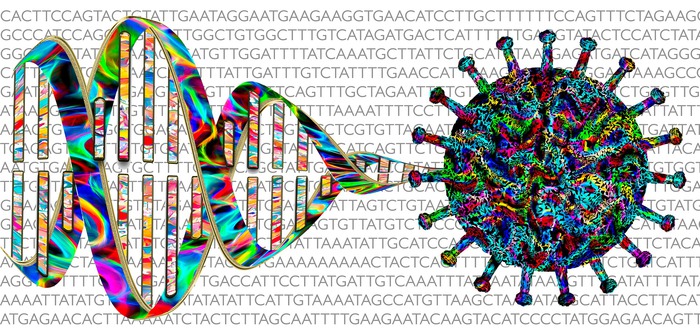A great leap forward for the future of Covid-19 therapy: "the discovery that there is a genetic basis in 15% of cases is a fundamental first step", Giuseppe Novelli, the University's Medical Genetics Laboratory, told ANSA of Rome Tor Vergata, following the publication, in the journal Science, of two articles which for the first time indicated that 15% of the most serious cases of Covid-19 are linked to a genetic defect that prevents or limits the production of type I interferon, one of the main weapons with which the immune system reacts to viruses.
"For the first time Covid-19 has a basis that we are able to understand", observed Novelli, who is one of the authors of the first article, dedicated to genetics;
the second article concerns the immunological analysis.
Both studies are coordinated by Jean-Laurent Casanova, of Rockefeller University and conducted by the International Consortium of Genetics, Covidhge.
For Italy, in addition to the University of Tor Vergata, the San Raffaele Institute of Milan participated with the group of Alessandro Aiuti, the Bambino Gesù Hospital in Rome, the Brescia Hospitals, the National Research Council (CNR).
"The novelty - continued Novelli - is that the discovery of the genetic bases allows patients to be stratified based on genetic characteristics", also bringing the coronavirus mattia among those that can benefit from 'personalized' medicine, that is, tailored to the genetic characteristics of patients.
"We now know that those with the most severe disease are unable to produce all or part of the interferon, and it is now possible to identify who is most at risk among the patients."
It is a first fundamental step and we are already looking to the future: "what emerged from the study must now be supported by further investigations, it is already being discussed within the Covidhge consortium", said Novelli.
"It is about promoting experiments to develop the optimal way to administer interferon to seriously ill Covid-19 patients. We have the advantage of having a drug that has been known for 30 years, but we need to clarify how to administer it, in what doses and in what moments ", he concluded.
The next step will be to study the genetic characteristics of asymptomatic people and those who resist the virus, that is, who despite being exposed to the virus does not get sick and does not become infectious















